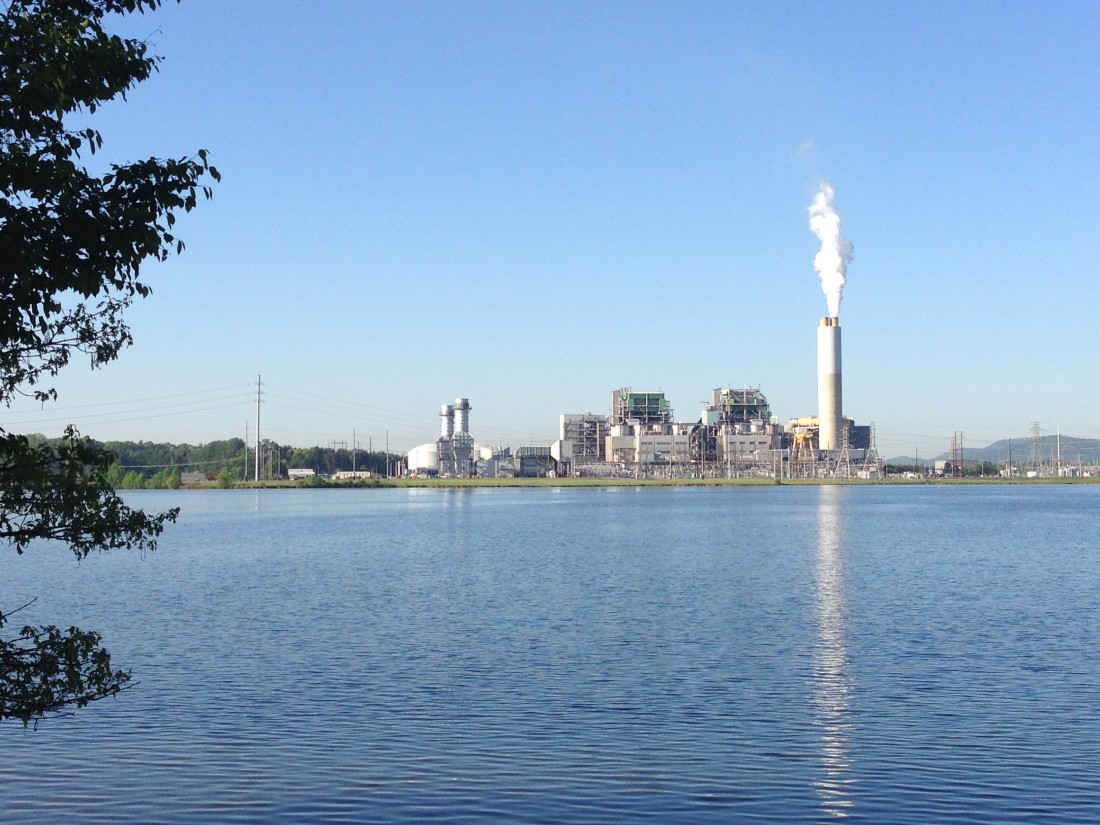UPDATE: Of 11 private wells targeted for testing near Duke Energy’s Asheville plant, results for 8 have come back. As of May 19, none of them have been deemed unsafe to drink or cook with, but the North Carolina Department of Environment and Natural Resources is resampling two of the wells, and the agency plans to expand its evaluation to include wells further from the plant.
The tests are part of a statewide sweep that has resulted in 166 of 204 wells being declared unsafe. Further updates are expected. For DENR’s most recent report, click here.
PREVIOUSLY REPORTED: Eight private wells located near Duke Energy’s Asheville-area plant have been tested for coal-ash contamination, and preliminary results on half of them show mixed results, say North Carolina environmental officials. N.C. Department of Environmental and Natural Resources officials have asked that two of the wells be re-tested, but report that none of the wells were deemed unsafe, says public-information officer Jamie Kritzer. More test results are expected later this week, he says.
Across the state, DENR is testing hundreds of wells that are within 1,000 feet of one of 32 coal-ash impoundments used by Duke Energy, says Kritzer. The tests are being paid for by Duke, and, if a well is deemed unsafe due to coal-ash contamination, the company must provide the homeowner with an alternative water source, he adds. DENR is testing for toxins associated with coal ash, such as arsenic, cobalt, total chromium, copper, iron, sodium, strontium, thallium, bicarbonate, carbonate and total dissolved solids.
In other parts of the state, more than 100 wells may be unsafe, a May 17 Los Angeles Times story reported. The article notes Duke’s recent $102 million federal penalty for “polluting North Carolina rivers with potentially toxic coal ash” during last year’s spill at the Dan River near Eden, N.C., and says that “123 North Carolina residents … have received letters from state health and environmental officials warning them that their well water is contaminated and unsafe for drinking or cooking.”
DENR will do more testing, says Kritzer, as the state agency expands the project to include wells located within 1,500 feet of Duke’s coal-ash ponds. As of the end of April, “171 samples have been collected from 144 homes. Of the 171 samples collected (which included split samples and samples taken from multiple wells on some properties),” a DENR fact-sheet says.
Meanwhile, Duke announced today, May 19, that it will retire the Asheville plant within the next five years, replacing it with a natural-gas facility and installing a solar-energy farm. Environmental groups, such as the Southern Alliance For Clean Energy, have applauded the plan:
Ceasing to burn coal at this plant, in combination with the planned clean-up of the plant’s coal ash storage ponds under the [N.C.] Coal Ash Management Act of 2014, will dramatically lower the risks this plant’s toxic coal ash poses to the river and reduce air pollution.
But a joint statement by MountainTrue, the Sierra Club, the Waterkeeper Alliance and the Southern Environmental Law Center states:
The retirement of the Asheville Plant is a step in the right direction, but it is a half measure, undermined by continuing reliance on an economically unpredictable and polluting source of power. Duke can do better, and our community deserves better.




The Dan River is nowhere near Charlotte. Duke Energy’s headquarters are. The Dan River spill was in Eden, NC. That is about 128 miles from Charlotte. Someone please do their research/proofread before publishing.